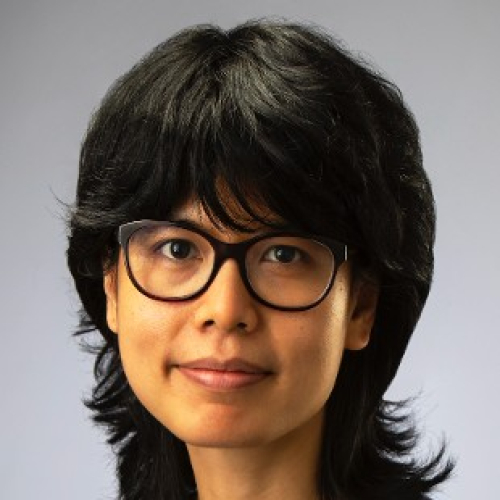
Professor Yimon Aye
I was born and raised in Burma and am a naturalized US citizen. I left my homeland (Burma) as I received a full scholarship to attend Cambridge Tutors College, UK (high school equivalent). I subsequently read chemistry at Somerville College, University of Oxford, UK, as an international student scholar (2000-2004), supported by several scholarships from Somerville College alongside the Oxford Waverley Scholarship, the Open Society Foundations, and the British Council Burma Funds. My undergraduate research was carried out with Prof. Stephen L. Buchwald (MIT, USA; summer 2023) and Prof. Stephen G. Davies (Oxford University, UK; Part II thesis in organic chemistry). I then moved to Harvard University, USA, achieving a Ph.D. in organic chemistry under the guidance of Prof. David A. Evans. I subsequently moved to MIT (USA) to research the cellular and biochemical regulatory mechanisms of the enzyme ribonucleotide reductase with Prof. JoAnne Stubbe.
I established my independent laboratory in mid-2012. My laboratory’s formative years were spent at Cornell University (USA) and EPFL (Switzerland). I recently returned to my undergraduate alma mater, Oxford Chemistry, as a Professor of Chemistry & Chemical Biology. When I began my own laboratory, I set out to understand the detailed mechanisms of cellular communications choreographed by innate reactive chemical signals (so-called ‘electrophilic metabolites’) and related drugs. This impetus culminated in the development of “REX” technologies (T-REX™ delivery and G-REX™ profiling, and more recently, Localis-REX, a technology that enables function-guided proximity mapping of local proteome’s druggability). My laboratory is globally most well-known for the abovementioned ‘electrophile signaling’ studies. But we also study proteins/pathways involved in mammalian genome maintenance and signaling by another class of endogenous non-reactive chemical signals (called ‘nucleotides’), including the mechanisms of anticancer agents in clinical use. Having travelled around the world over two decades, I am pleased to return to Oxford Department of Chemistry in fall 2024, where I lead an interdisciplinary research team.
Contributions from the Aye laboratory have been recognised by various international accolades, including Klaus Grohe Prize, International Chemical Biology Society distinguished investigators in Chemical Biology, ACS Eli Lilly, Arthur Cope Scholar, Tetrahedron Young Investigator, and ERC consolidator awards as recent honours. I served as an Associate Editor of ACS Chemical Biology (2022-2024) prior to my recent appointment as Editor in Chief of Current Opinion in Chemical Biology. My recent community citizenship contributions include organisations of EMBO chemical biology meeting (2022, 2024), EFMC International Symposium in Chemical Biology (2023), ERC panel membership, and ad-hoc reviews for local and international funding agencies, charitable foundations, and peer-reviewed journals, amongst others.
Detailed biography
Helpful links www.aye-lab.com
Hobbies:
Learning something new
Other interests:
Outreach and public engagement
https://www.aye-lab.com/outreach
Fund-raising for wider communities
Publications
Professor Yimon Aye

I was born and raised in Burma and am a naturalized US citizen. I left my homeland (Burma) as I received a full scholarship to attend Cambridge Tutors College, UK (high school equivalent). I subsequently read chemistry at Somerville College, University of Oxford, UK, as an international student scholar (2000-2004), supported by several scholarships from Somerville College alongside the Oxford Waverley Scholarship, the Open Society Foundations, and the British Council Burma Funds. My undergraduate research was carried out with Prof. Stephen L. Buchwald (MIT, USA; summer 2023) and Prof. Stephen G. Davies (Oxford University, UK; Part II thesis in organic chemistry). I then moved to Harvard University, USA, achieving a Ph.D. in organic chemistry under the guidance of Prof. David A. Evans. I subsequently moved to MIT (USA) to research the cellular and biochemical regulatory mechanisms of the enzyme ribonucleotide reductase with Prof. JoAnne Stubbe.
I established my independent laboratory in mid-2012. My laboratory’s formative years were spent at Cornell University (USA) and EPFL (Switzerland). I recently returned to my undergraduate alma mater, Oxford Chemistry, as a Professor of Chemistry & Chemical Biology. When I began my own laboratory, I set out to understand the detailed mechanisms of cellular communications choreographed by innate reactive chemical signals (so-called ‘electrophilic metabolites’) and related drugs. This impetus culminated in the development of “REX” technologies (T-REX™ delivery and G-REX™ profiling, and more recently, Localis-REX, a technology that enables function-guided proximity mapping of local proteome’s druggability). My laboratory is globally most well-known for the abovementioned ‘electrophile signaling’ studies. But we also study proteins/pathways involved in mammalian genome maintenance and signaling by another class of endogenous non-reactive chemical signals (called ‘nucleotides’), including the mechanisms of anticancer agents in clinical use. Having travelled around the world over two decades, I am pleased to return to Oxford Department of Chemistry in fall 2024, where I lead an interdisciplinary research team.
Contributions from the Aye laboratory have been recognised by various international accolades, including Klaus Grohe Prize, International Chemical Biology Society distinguished investigators in Chemical Biology, ACS Eli Lilly, Arthur Cope Scholar, Tetrahedron Young Investigator, and ERC consolidator awards as recent honours. I served as an Associate Editor of ACS Chemical Biology (2022-2024) prior to my recent appointment as Editor in Chief of Current Opinion in Chemical Biology. My recent community citizenship contributions include organisations of EMBO chemical biology meeting (2022, 2024), EFMC International Symposium in Chemical Biology (2023), ERC panel membership, and ad-hoc reviews for local and international funding agencies, charitable foundations, and peer-reviewed journals, amongst others.
Detailed biography
Helpful links www.aye-lab.com
Hobbies:
Learning something new
Other interests:
Outreach and public engagement
https://www.aye-lab.com/outreach
Fund-raising for wider communities